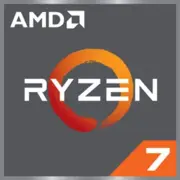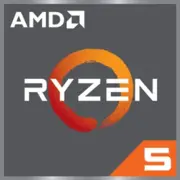Advantages
- More Total Cores: 8 (8 vs 6)
- Higher Max Turbo Frequency: Up to 4.5GHz (Up to 4.5GHz vs Up to 4.4GHz)
- Larger L3 Cache: 96MB (96MB vs 32MB)
Basic
AMD
Label Name
AMD
April 2022
Launch Date
April 2022
Desktop
Platform
Desktop
Vermeer
Code Name
Vermeer
CPU Specifications
8
Total Cores
?
Cores is a hardware term that describes the number of independent central processing units in a single computing component (die or chip).
6
16
Total Threads
?
Where applicable, Intel® Hyper-Threading Technology is only available on Performance-cores.
12
3.4GHz
Basic Frequency
3.5GHz
Up to 4.5GHz
Max Turbo Frequency
?
Max Turbo Frequency is the maximum single-core frequency at which the processor is capable of operating using Intel® Turbo Boost Technology and, if present, Intel® Turbo Boost Max Technology 3.0 and Intel® Thermal Velocity Boost. Frequency is typically measured in gigahertz (GHz), or billion cycles per second.
Up to 4.4GHz
512KB
L1 Cache
384KB
4MB
L2 Cache
3MB
96MB
L3 Cache
32MB
AM4
CPU Socket
?
The socket is the component that provides the mechanical and electrical connections between the processor and motherboard.
AM4
-
Unlocked for Overclocking
?
AMD`s product warranty does not cover damages caused by overclocking, even when overclocking is enabled via AMD hardware and/or software. GD-26.
Yes
TSMC 7nm FinFET
Technology
?
Lithography refers to the semiconductor technology used to manufacture an integrated circuit, and is reported in nanometer (nm), indicative of the size of features built on the semiconductor.
TSMC 7nm FinFET
105W
TDP
65W
90°C
Max. Operating Temperature
?
Junction Temperature is the maximum temperature allowed at the processor die.
90°C
PCIe 4.0
PCI Express Version
?
PCI Express Revision is the supported version of the PCI Express standard. Peripheral Component Interconnect Express (or PCIe) is a high-speed serial computer expansion bus standard for attaching hardware devices to a computer. The different PCI Express versions support different data rates.
PCIe 4.0
Memory Specifications
DDR4
Memory Type
?
Intel® processors come in four different types: Single Channel, Dual Channel, Triple Channel, and Flex Mode. Maximum supported memory speed may be lower when populating multiple DIMMs per channel on products that support multiple memory channels.
DDR4
2
Memory Channels
?
The number of memory channels refers to the bandwidth operation for real world application.
2
-
Bus Speed
Up to 3200MT/s
GPU Specifications
Discrete Graphics Card Required
Integrated Graphics Model
?
An integrated GPU refers to the graphics core that is integrated into the CPU processor. Leveraging the processor's powerful computational capabilities and intelligent power efficiency management, it delivers outstanding graphics performance and a smooth application experience at a lower power consumption.
Discrete Graphics Card Required
Miscellaneous
Windows 11 - 64-Bit Edition, Windows 10 - 64-Bit Edition, RHEL x86 64-Bit, Ubuntu x86 64-Bit *Operating System (OS) support will vary by manufacturer.
OS Support
Windows 11 - 64-Bit Edition, Windows 10 - 64-Bit Edition, RHEL x86 64-Bit, Ubuntu x86 64-Bit *Operating System (OS) support will vary by manufacturer.
Benchmarks
Geekbench 6 Single Core
Ryzen 7 5800X3D
2085
+3%
Ryzen 5 5600
2023
Geekbench 6 Multi Core
Ryzen 7 5800X3D
10922
+28%
Ryzen 5 5600
8527
Geekbench 5 Single Core
Ryzen 7 5800X3D
1610
+4%
Ryzen 5 5600
1543
Geekbench 5 Multi Core
Ryzen 7 5800X3D
10915
+39%
Ryzen 5 5600
7833
Passmark CPU Single Core
Ryzen 7 5800X3D
3230
Ryzen 5 5600
3257
+1%
Passmark CPU Multi Core
Ryzen 7 5800X3D
28296
+31%
Ryzen 5 5600
21570
Related CPU Comparisons
Share in social media
Or Link To Us
<a href="https://cputronic.com/cpu/compare/amd-ryzen-7-5800x3d-vs-amd-ryzen-5-5600" target="_blank">AMD Ryzen 7 5800X3D vs AMD Ryzen 5 5600</a>





